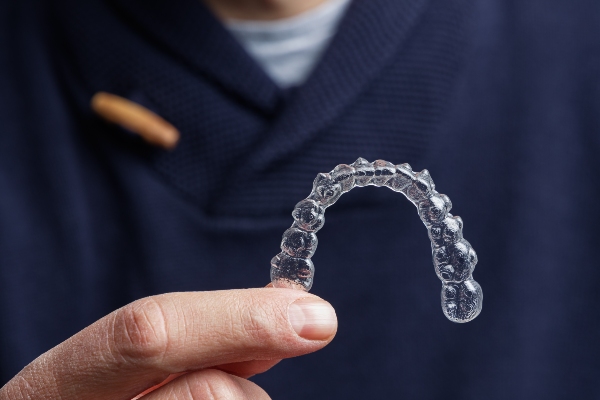 Among the most common dental problems that a general dentist treats are cavities. Most people will experience this form of tooth decay at some point due to:
Among the most common dental problems that a general dentist treats are cavities. Most people will experience this form of tooth decay at some point due to:
- Dry mouth
- Sugary foods and drinks
- Poor oral hygiene
- Genetics
There are several types of cavities, and each can lead to complications without prompt treatment.
How do dentists treat cavities?
A general dentist first considers a cavity's location when determining how to proceed. Beyond that, size and depth dictate which procedure is a suitable treatment.
Smooth surface cavities
Cavities that form on the relatively flat outer surfaces of teeth advance slowly and are highly treatable with fluoride. At the first signs of deterioration, dentists may instruct patients to use a fluoride-based toothpaste and mouth rinse to restore worn tooth enamel. Avoidance of sugary or acidic foods can prevent further damage. More aggressive fluoride treatments can be performed in a dental office and involve painting the teeth with a varnish that hardens into a film to bathe teeth in enamel-strengthening fluoride until brushing removes it.
Pit cavities
Molars and premolars involved in aggressive chewing are especially prone to cavities due to their irregular top surfaces. As part of an exam, a general dentist presses a fine-tipped instrument pressed onto the tooth, and if it sinks or catches, a cavity is present.
If the pitting is not deep, the dentist may apply a fluoride treatment but more commonly uses a sealant. This fills in the hole and creates a protective barrier on the tooth's surface that can last 10 years. A filling is warranted when a cavity progresses to the dentin, the layer immediately behind the enamel. Treatment involves removing decayed portions of the tooth and filling the opening with tooth-colored porcelain or metal such as gold or silver.
Root cavities
X-rays can diagnose root cavities, but they may be visible during a routine examination if there is gum recession. A general dentist's approach to treating a root cavity depends on how far it has progressed. In the early stages of decay, fluoride treatments may be sufficient, but moderate or advanced decay requires removing portions of the tooth and adding a filling. If the inner pulp containing the nerve is infected, a root canal may be necessary, involving not only removing decayed portions of the tooth but the entire root to save the tooth. The tooth is then reinforced with a crown.
Between-teeth cavities
Early-stage cavities between teeth are nearly impossible to see with the naked eye, but dentists use X-ray imaging to detect their presence. These cavities are manageable with fluoride treatments; however, if they become apparent by expanding into the dentin layer, a dentist must remove diseased portions of the tooth and apply a dental filling.
Conclusion
Visiting a general dentist for regular dental cleanings, maintaining rigorous oral home care, and having a healthy diet can protect teeth from premature wear that can cause cavities. Fortunately, it is possible to rebuild enamel if the deterioration is detected before it expands beyond the tooth surface; however, prompt treatment is crucial to prevent further complications.
Request an appointment or call Stone Canyon Dental at 972-226-6655 for an appointment in our Sunnyvale office.
Recent Posts
Wondering whether it is OK to skip oral hygiene from time to time? Read on to learn from a general dentist why that is not a good idea. All general dentists preach the importance of good oral hygiene between dental cleaning visits for a reason. The long-term focus for general dentists is on helping their…
You might think that if you are diligent about brushing and flossing at home, you can visit a dentist's office less often. However, general dentistry professionals agree that regularly visiting a dentist is important for your dental and overall health, even with good oral hygiene. In addition, there are numerous reasons it is a good…
Your experienced general dentist can repair your cavities. Assessing your teeth will come first. Then, the dentist will discuss the treatment options with you. Knowing which option can help you the most can prepare you for the visit. Here are the details about the different cavity treatments that your general dentist can discuss with you.The…







